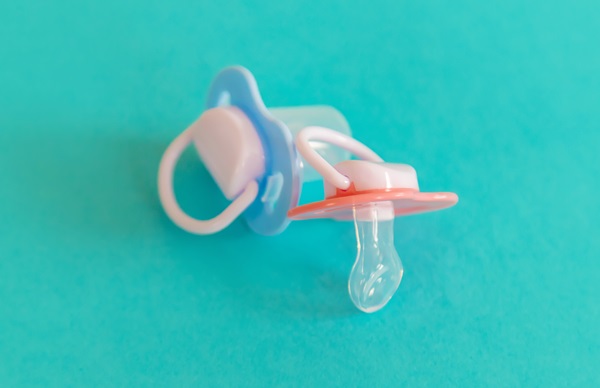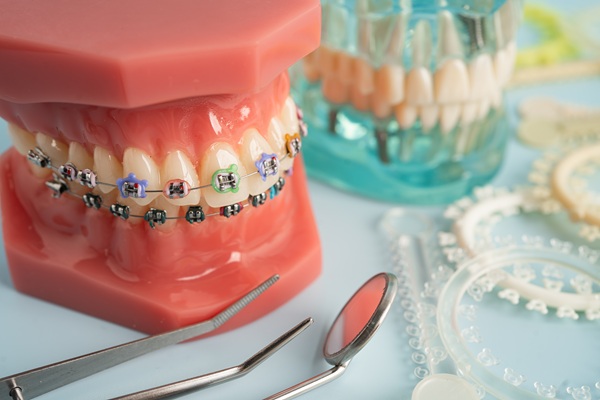During our children’s developmental stages, it is common for them to exhibit behaviours and mannerisms that complement the stage of growth they are commonly at.
And when their teeth start to grow, behaviours such as thumb-sucking and pacifier are just two of the common ways infants and toddlers deal with these changes to give them comfort and familiarity.
Now, while these habits provide the comfort and security they need, they may cause a more permanent effect in the long run — therefore, it may impact your child’s dental health. Understanding how these practices affect dental development is crucial for parents and caregivers, which is why it is important to see whether or not it is a safe option for the kids.
Let’s dive right into the basics of children’s pacifier use and thumb-sucking!
Understanding Pacifier Use and Thumb-Sucking
What are Pacifiers and Why Do Children Use Them?
Pacifiers, often called soothers or teats, are usually made from silicone or rubber that may help satisfy a baby’s natural need to suck. Many parents give pacifiers to comfort their babies, helping them feel secure, fall asleep, or calm down in stressful moments.
What is Thumb-Sucking and Why Do Children Do It?
Thumb-sucking is a natural reflex seen in many babies.
It often starts while the baby is still in the womb and continues after birth. Children may suck their thumbs for different reasons, such as to comfort themselves, when they are bored, or to explore their surroundings.
The Dental Impact of Pacifiers and Thumb-Sucking
Early Stages of Development
In the early years, children thumb sucking and using pacifiers are generally harmless and can even have soothing benefits. However, as children grow and their teeth begin to emerge, the implications of these habits become more significant, causing dental issues due to pacifiers and thumb sucking.
Alignment Issues
One of the most common dental concerns associated with prolonged thumb-sucking and pacifier use is misalignment of the teeth.
When children suck their thumbs or use pacifiers beyond the age of three, they may develop an open bite or overbite. This misalignment may lead to difficulty in chewing and an increased risk of tooth decay due to improper cleaning of the teeth.
Changes in the Shape of the Mouth
Additionally, prolonged thumb-sucking or pacifier can affect the shape of the mouth and jaw.
The constant pressure exerted by the thumb or pacifier can lead to a narrowing of the dental arch, which may result in crowded teeth as permanent teeth emerge. This crowding can complicate future orthodontic treatment, making early intervention critical.
Duration and Frequency Matters
Recommended Limits
The impact of thumb-sucking and pacifier use largely depends on the duration and frequency of these behaviours. While occasional use is generally acceptable, it is advisable to limit these habits as the child approaches the age of three.
Recognising the Signs
Parents should be vigilant in observing their child’s habits. If a child continues to suck their thumb or use a pacifier frequently after the age of three, it may be time to consider gentle ways to help them transition away from these habits.
Strategies to Wean Children From Thumb-Sucking and Pacifier Use
Positive Reinforcement
Encouraging children to stop thumb-sucking or pacifier use can be challenging, but positive reinforcement can be effective.
Praise your child for spending time without their pacifier or thumb in their mouth. You can also create a reward system to celebrate their successes, such as stickers or small treats.
Offering Alternatives
Introducing alternative comfort items, such as a soft toy or a blanket, may provide children with a sense of security without the negative dental effects. Teaching children coping mechanisms, such as deep breathing or engaging in a favourite activity, may also help distract them from the urge to suck.
The Importance of Early Dental Visits
Regular dental visits play a crucial role in monitoring your child’s oral health.
Paediatric dentists can identify any potential issues related to thumb-sucking or pacifier use early on. They can provide tailored advice and recommendations for parents, helping to mitigate the impact of these habits on dental development.
Professional Guidance
If you notice that your child’s thumb-sucking or pacifier use is becoming problematic, don’t hesitate to consult your paediatric dentist. They can assess the situation and suggest appropriate interventions, such as behavioural strategies or orthodontic evaluation, if necessary.
Protect Your Child’s Oral Health Early
Although thumb-sucking and pacifier use are common in babies and toddlers, they can have long-term effects on dental health if continued too long. Parents and caregivers should be aware of these possible dental issues.
By understanding the need to limit these habits and promoting healthier alternatives, you can help your child keep a healthy smile. Regular dental check-ups will also support your child’s dental health, allowing for timely help if needed. A proactive approach to oral health lays the groundwork for a lifetime of confident smiles.
Find the right partner to help protect your child’s oral health during the early stages of their life with Bellevue Hill Dental’s specialised children’s dentistry services. These specific services are designed to cater not just to the child’s needs but to the concerns of their parents as well. Our team may be able to help you navigate the changes in your child’s oral health as they grow up, keeping their teeth safe and healthy.
Book a consultation now or call our line at (02) 9158 1530 to begin your child’s dental journey today.



